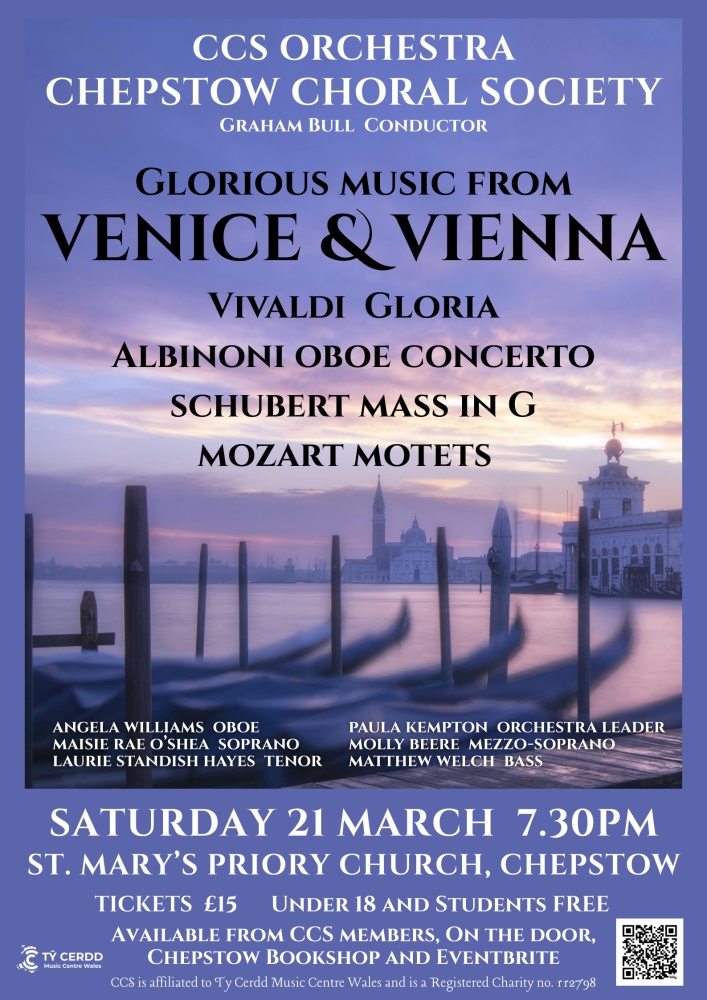Chepstow Choral Society
Chepstow Choral Society was formed in 1979, and has been performing live music in the town regularly ever since. Currently directed by Graham Bull, Head of Performing Arts at a leading Gloucestershire school, it has about 65 members in total, of all ages & abilities ...read more
Upcoming Concerts
2026
Saturday 21st March - 7.30pm St Mary's Priory Church Chepstow
VIVALDI - GLORIA
ALBINONI - Oboe Concerto Op 9 no 2
SCHUBERT - MASS in G
MOZART - Motets
Featuring the CCS ORCHESTRA (Leader – Paula Kempton, Musical Director - Graham Bull)
with soloists
MAISIE RAE O’SHEA (Soprano)
MOLLY BEERE (Mezzo-Soprano
LAURIE STANDISH HAYES (Tenor)
MATTHEW WELCH (Bass)
ANGELA WILLIAMS -- Oboe
Tickets £15.00, u/18s and students free
from Eventbrite, Choir members, Chepstow Bookshop or available on the door
-
3rd Oct 2025
Why not join us? -
3rd Oct 2025
Teaming up with Monmouth -
21st Jun 2017
Chepstow Choral Society "Kicks Ass" !










 About Us
About Us Join Us
Join Us Concerts
Concerts Blog
Blog